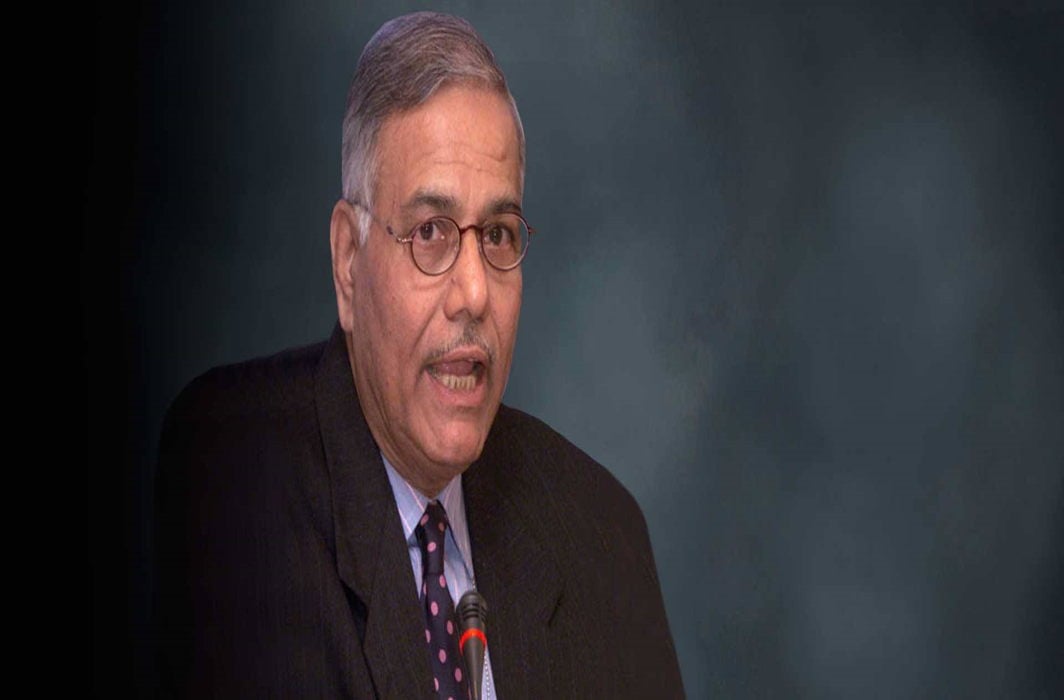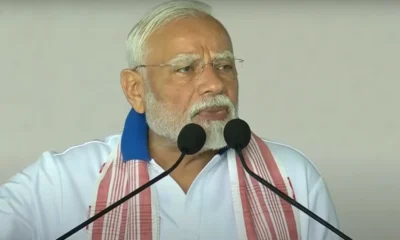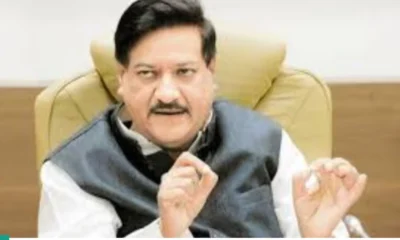[vc_row][vc_column][vc_column_text]Yashwant Sinha on Thursday stood by the article in which he had criticised Finance Minister Arun Jaitley for making a mess of the economy and followed it up with further, specific details of lapses on the part of the government.
Sinha, speaking to ANI on Thursday, said, “We have all known for many days that the Indian economy has been seeing a decline… This process has been going for the past one-and-a-half years… Even then I kept silent.. The latest GDP figures came out and growth rate fell below 6% and the concerns grew deeper. The government didn’t say anything for over a week, then I felt that I should bring the issue to the public domain.”
“Before 2014, I was the party [BJP) spokesperson when it came to economic affairs. We used to call then United Progressive Alliance [UPA] government situation ‘Policy Paralysis’. This government is not paralysed as many decisions are being taken. But, there is confusion in the government that development can be done through welfare schemes, which is not right,” he said to news agency ANI.
“I am not talking just based on one quarter’s numbers, the economy has been falling for six straight quarters,” said Sinha.
The biggest culprit that made a bad situation near-catastrophic is demonetisation, said Sinha who had called the move “an unmitigated economic disaster” in his column.
“The biggest culprit for growth slowing is the note ban. A thorough study should have been done on its effects to the economy, to jobs and it should have been introduced when the economy was in a healthy state, not in the manner it was introduced,” said Sinha.
As for GST, Sinha had written that its rollout was “badly conceived and poorly implemented”. He reiterated that today. “After the demonetisation shocker, GST was another one. What was the need to hurry? They could have launched it in October,” said Sinha.
“Demonetisation shouldn’t have been brought when economy was weak. Its effects were yet to subside and GST served as second big blow,” Sinha said. “I was a supporter of GST. Govt was in a hurry to implement it from July. Now, GSTN which is the backbone is failing,” he said.
Responding to Union Home Minister Rajnath Singh and Railway Minister Piyush Goyal’s comments on Wednesday, saying that India was one of the fastest growing economies of the world, he said, “maybe Rajnath Singh and Piyush Goyal know the economy better so they think India is the backbone of the world economy. I politely disagree.”
“If you leave out Congress finance ministers then I am the only person who presented 7 budgets,” he said.
When asked about his son, Minister of State for Civil Aviation Jayant Sinha’s editorial in the Times of India on Thursday being seen as a rebuttal of his own position, Yashwant Sinha said, “There is no family feud over this. I haven’t spoken to him recently. So I don’t know whether he was asked to write this or he wrote it on his own. In any case it is a demonstration that he is being trusted to put forward the government’s view on policy. Well and good, then why was he removed from the Finance Ministry.”
“It is not a father and son issue. If Jayant Sinha has written what he has, its his own sweet will. …If he has been asked, I would say it was a cheap trick to pit father against son. Haven’t spoken to him today,” he told NDTV.
His own prescriptions for the recovery of the Indian economy, he said, was to start from strengthening the banking system and weeding out the Non-Performing Assets (NPAs). “Apart from everything else, the first and foremost goal of the government is to strengthen the banks, but we are awaiting actions in this regard,” he said.
On claims by the government that its work would benefit the country in the long run, he responded by quoting John Maynard Keynes that “In the long run, we are all dead.”
Sinha, a veteran leader of the Bharatiya Janata Party, earlier said poorly executed policy shifts had stalled growth. “Economies are destroyed more easily than they are built,” he wrote in The Indian Express on Wednesday.
He also absolved the previous, UPA government of responsibility for the current situation. “We can’t blame the government before us as we got the full chance,” he said.
Sinha told NDTV he had sought to meet Prime Minister Narendra Modi a year ago, but was yet to hear back from his office about the appointment. “I had sought an appointment to meet the PM a year ago. He has not met me. Should I be sitting in protest outside his house,” Sinha said.
“No one is willing to listen to us in the government and the party,” he added.
Fielded to defend the government against him, Yashwant Sinha’s son Jayant Sinha said in a TOI piece on Thursday that conclusions drawn from a narrow set of facts simply missed the fundamental structural reforms transforming the economy. “We are creating a robust new economy that will power longterm growth and job creation”.
Jayant Sinha’s rebuttal piece talks about the ‘New India’ which will be built on the foundation of Modi’s economic policies. It argues that measures such as demonetisation and introduction of goods and services tax (GST) will act as building blocks by bringing in formalisation in the economy as a result of which a) tax collections will go up and more resources will be made available to the state; b) friction will reduce in the economy and GDP will rise; and c) citizens will be able to establish credit more effectively as transaction records are digitised.
He also talks about the improvement in FDI inflows from $36 billion in 2013-14 to $60 billion in 2016-17, the government’s various policy initiatives such as bankruptcy code, energy sector initiatives, subsidy reforms through Jan Dhan-Aadhaar-Mobile backed direct benefit transfer (DBT). Further, Sinha talks about the progress made on rural electrification, infrastructure push, employment promotion programmes of the Modi government.
But Jayant Sinha’s rebuttal does not answer his father’s criticism on specific issues which are borne out by data: “Private investment has shrunk as never before in two decades, industrial production has all but collapsed, agriculture is in distress, construction industry, a big employer of the work force, is in the doldrums, the rest of the service sector is also in the slow lane, exports have dwindled, sector after sector of the economy is in distress, demonetisation has proved to be an unmitigated economic disaster, a badly conceived and poorly implemented GST has played havoc with businesses and sunk many of them and countless millions have lost their jobs with hardly any new opportunities coming the way of the new entrants to the labour market.”[/vc_column_text][/vc_column][/vc_row]


 Latest world news21 hours ago
Latest world news21 hours ago
 Latest world news22 hours ago
Latest world news22 hours ago
 Cricket news21 hours ago
Cricket news21 hours ago
 India News17 hours ago
India News17 hours ago
 India News13 hours ago
India News13 hours ago















